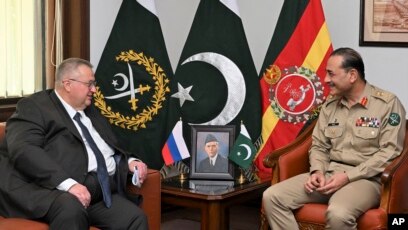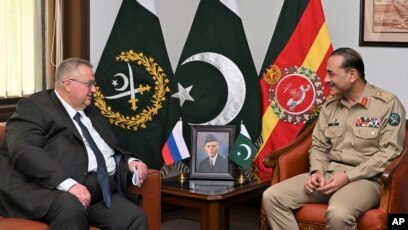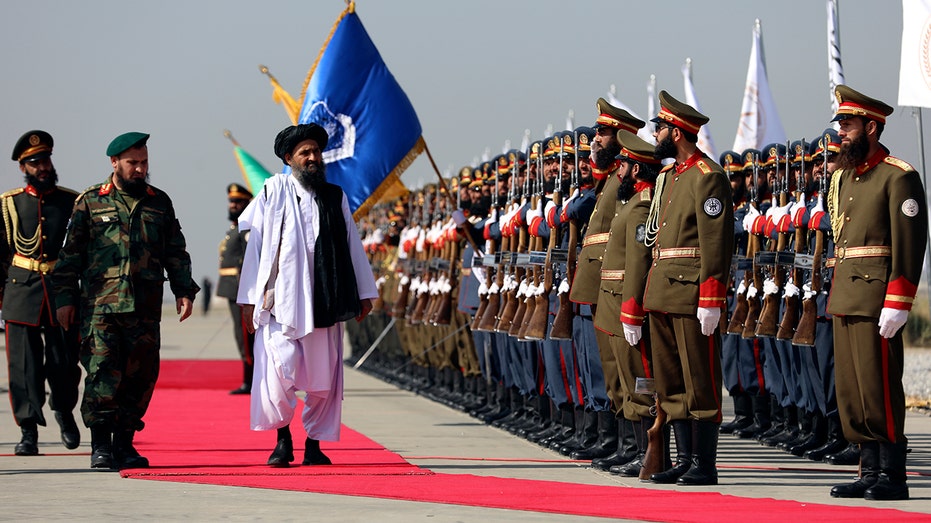
India’s Strategic Engagement with the Taliban: A New Chapter in Bilateral Relations
By [Author Name], [Publication Name]
A Historic Meeting in Dubai
In a notable diplomatic engagement, India’s Foreign Secretary Vikram Misri met Afghanistan’s Acting Foreign Minister Amir Khan Muttaqi in Dubai last week. This marked the highest-level interaction between the two nations since the Taliban’s takeover of Afghanistan in 2021, signaling India’s increased involvement with the Taliban administration.
This meeting comes just two months after an earlier diplomatic exchange between officials from New Delhi and Kabul, showcasing both countries’ willingness to expand their dialogue. “We shouldn’t overstate the impact of Pakistan’s tensions with the Taliban on India’s stepped-up engagement with the Taliban,” commented Michael Kugelman, Director of the South Asia Institute at the Wilson Center, highlighting that India had begun engaging the Taliban shortly after their return to power, well before the deterioration of Taliban-Pakistan relations.
Strengthening Bilateral Ties
During the meeting, Misri emphasized the “historic friendship” and “strong people-to-people connections” between India and Afghanistan. In response, Minister Muttaqi recognized India’s vital role in the region, identifying it as an “important country.” According to a statement from India’s Ministry of External Affairs, discussions focused on enhancing bilateral relations, addressing security concerns, and advancing developmental projects alongside humanitarian assistance.
India has consistently supported Afghanistan through trade, aid, and medical relief under the Taliban regime, and has also pledged continued “material support” for Afghan refugees rehabilitating within Afghanistan.
Tackling Security and Trade Concerns
Kugelman explains that India’s outreach to the Taliban is rooted in a belief that closer relations can satisfy its security and strategic goals. These goals include fostering trade links, enhancing connectivity, and ensuring that Afghanistan does not become a launching pad for terrorist activities against India.
A significant agenda item in their discussions was the potential for increasing trade via Iran’s Chabahar Port located in the Sistan-Baluchestan province. This port is being developed by India as an alternative corridor to bypass Pakistan’s ports, enabling Afghanistan to facilitate its trade internationally. Strategically placed near the Pakistan border, Chabahar is expected to lessen Afghanistan’s dependence on Pakistani trade routes.
Regional Implications of India-Taliban Relations
The strengthening partnership between India and the Taliban could exacerbate the already strained relations between Pakistan and the Taliban. Despite their prior alliance, the Taliban’s relationship with Pakistan seems to be deteriorating amidst increasing cross-border violence. The recent meeting between India and Afghanistan indicates a shift in regional dynamics as Islamabad faces challenges in managing its connections with the Afghan leadership.
These tensions are compounded by India’s condemnation of Pakistan’s airstrikes in Afghanistan in December, which reportedly caused civilian casualties, including women and children. While Islamabad claimed the strikes targeted Pakistani Taliban militants using Afghan territory for attacks, Kabul denied such allegations, highlighting the fragility of regional cooperation.
Diplomatic Maneuvers and International Relationships
India’s diplomatic efforts followed the Taliban’s appointment of an acting consul in its Bombay consulate in November, along with a visit by India’s Joint Secretary of the Ministry of External Affairs to Kabul. Despite active engagement, no foreign government, including India, has formally recognized the Taliban regime. Nevertheless, India resumed operations at its Kabul embassy less than a year after the Taliban’s ascension to power, signaling its intent to maintain a presence in Afghanistan.
Kugelman asserted that as Pakistan’s relationship with the Taliban wanes, Islamabad must confront the reality that India might fill the diplomatic void left by its distancing from the Afghan administration. This development poses grave strategic concerns for Pakistan.
Geopolitical Factors Influencing Regional Dynamics
While the strained ties between Pakistan and the Taliban may partly explain India’s diplomatic movements, other geopolitical considerations are also influencing the situation. Iran’s waning influence in Afghanistan—due to various conflicts in the Middle East and internal strife—provides an opening for countries like India to enhance their engagement in the region.
Concurrently, Russia, a close ally of India, is reportedly warming up to recognizing the Taliban, viewing them as potential partners in the fight against terrorism. Additionally, China’s strengthening ties with the Taliban compel India to strategically counterbalance Beijing’s growing footprint in Afghanistan.
India appears to be preparing for potential geopolitical shifts, accentuated by uncertainties in U.S. foreign policy especially in light of the upcoming presidential election. The possibility of a returning Donald Trump to the White House could reshape regional dynamics, given his administration’s history with the Taliban through the U.S.-Afghanistan withdrawal agreement.
Conclusion: A New Era in Afghanistan
As the United States has severed diplomatic ties with Kabul post-2021 withdrawal and continues pursuing a policy of sanctions against Taliban leaders, India’s increasing engagement stands in contrast to Western reluctance to recognize the current regime. With countries in the region reevaluating their strategies in response to the evolving political climate, India’s proactive approach signifies its resolve to establish a significant role in Afghanistan’s future.
Thus, India’s diplomatic initiatives, coupled with its strategic interests in Afghanistan, underline the complex interplay of regional and global politics, as the nation navigates its relationships with the Taliban amidst shifting power dynamics.


















